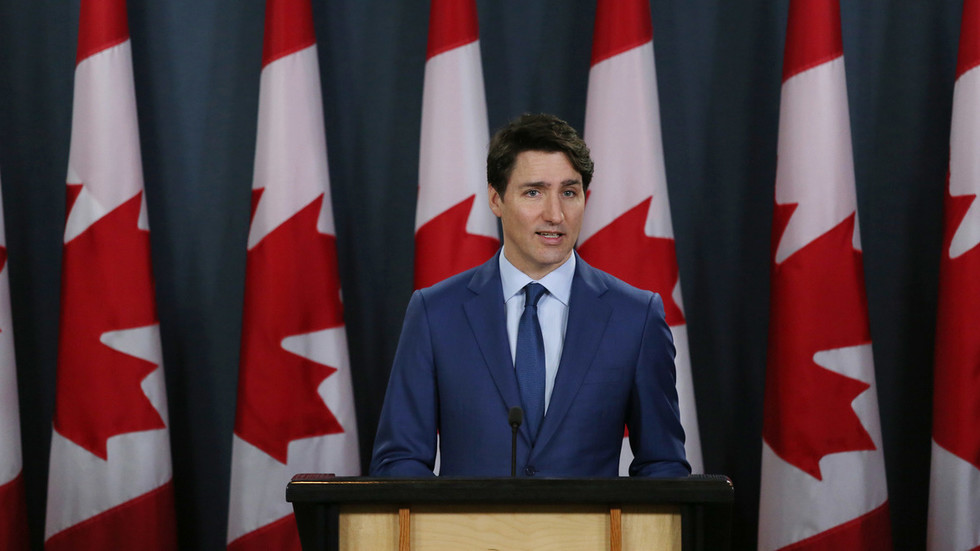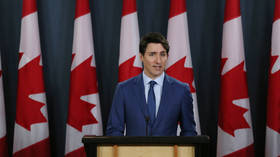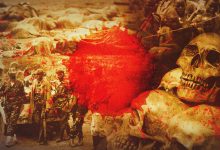
Relations between the countries soured after Ottawa linked New Delhi to the murder of a Sikh independence activist
File photo: Canadian Prime Minister Justin Trudeau. © Dave Chan/Getty Images Canada may have received evidence from ‘Five Eyes’ allies that India was behind the killing of a Sikh separatist leader on Canadian soil, Prime Minister Justin Trudeau has told a commission of inquiry. Earlier this week, Trudeau accused India of carrying out a campaign of violence against Sikhs on Canadian soil, as well as assassinating the Khalistan independence movement head in British Columbia last year. “I was apprised by my intelligence services that there was credible intelligence that agents of the government of India were involved in the killing of Hardeep Singh Nijjar,” Trudeau told the Hogue Commission on Wednesday. The commission was set up by Ottawa to investigate “foreign interference in federal electoral processes and democratic institutions,” focusing primarily on China and Russia. “We actually asked intelligence agencies, and it turned out they were doing this anyway, to look in more closely to the circumstances around this particular murder,” Trudeau added. “So in late July, early August, I was briefed on the fact that there was intelligence from Canada, and possibly from Five Eyes allies that made it fairly clear, incredibly clear, that India was involved in this.” The ‘Five Eyes’ refers to a partnership to share intelligence and surveillance by the US, UK, Canada, Australia, and New Zealand.
Read more Trudeau testified that his initial strategy was to have senior intelligence and government officials reach out to Indian intelligence, because he did not want to disrupt relations with New Delhi. India, however, insisted on seeing evidence. “And at that point, it was primarily intelligence, not hard evidentiary proof,” Trudeau told the commission. “So we said, ‘well, let’s work together and look into your security services’, but the Indian response was ‘No, no, no, we’re not doing that’.” According to Trudeau, his Indian counterpart Narendra Modi deflected questions about the Nijjar killing at the G20 summit in September last year by demanding that Canada crack down on Khalistan separatists. The Canadian prime minister reportedly replied that “One India is official Canadian policy,” but that it was the free speech right of Sikhs in Canada to disagree. “It was obvious that the Indian government response, particularly to the media, was to instead to attack Canada, to attack Canadians, to criticize us, to undermine our government and our governments, quite frankly, the integrity of our democracy,” Trudeau testified. Canada expelled a number of Indian diplomats on Monday, after Trudeau accused Modi’s government of engaging in criminal activities on Canadian soil. New Delhi expelled Canadian diplomats in return and accused Trudeau of pandering to the Sikh immigrant community, which makes up much of the 1.8 million Indians living in Canada. Since Trudeau made the allegations last year, India has vehemently denied the charges. On Monday, New Delhi stated that the Canadian government has not shared “a shred of evidence with India despite many requests.” It described the allegations as “preposterous imputations,” suggesting they were part of Trudeau’s “political agenda” centered on “vote bank politics.”





